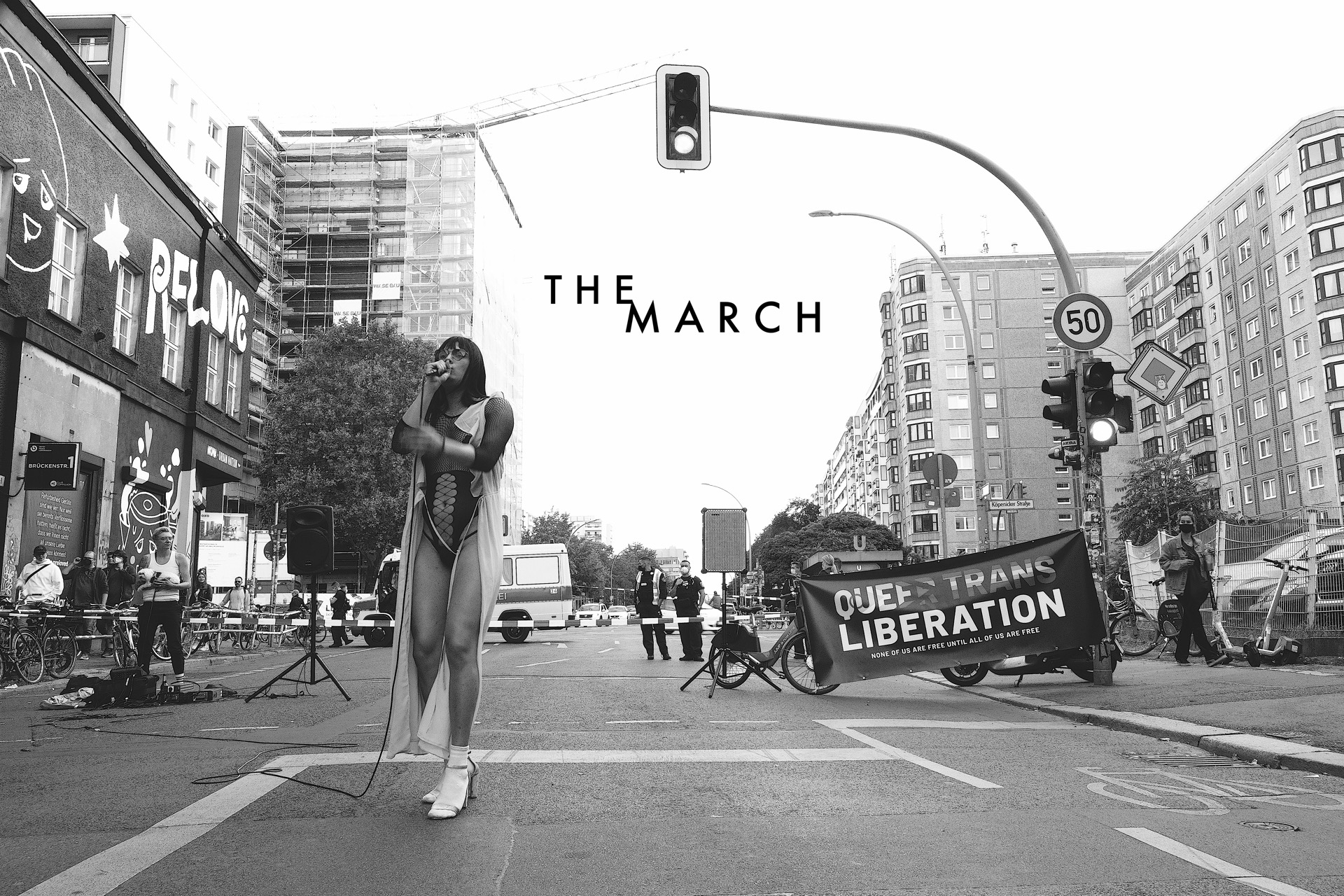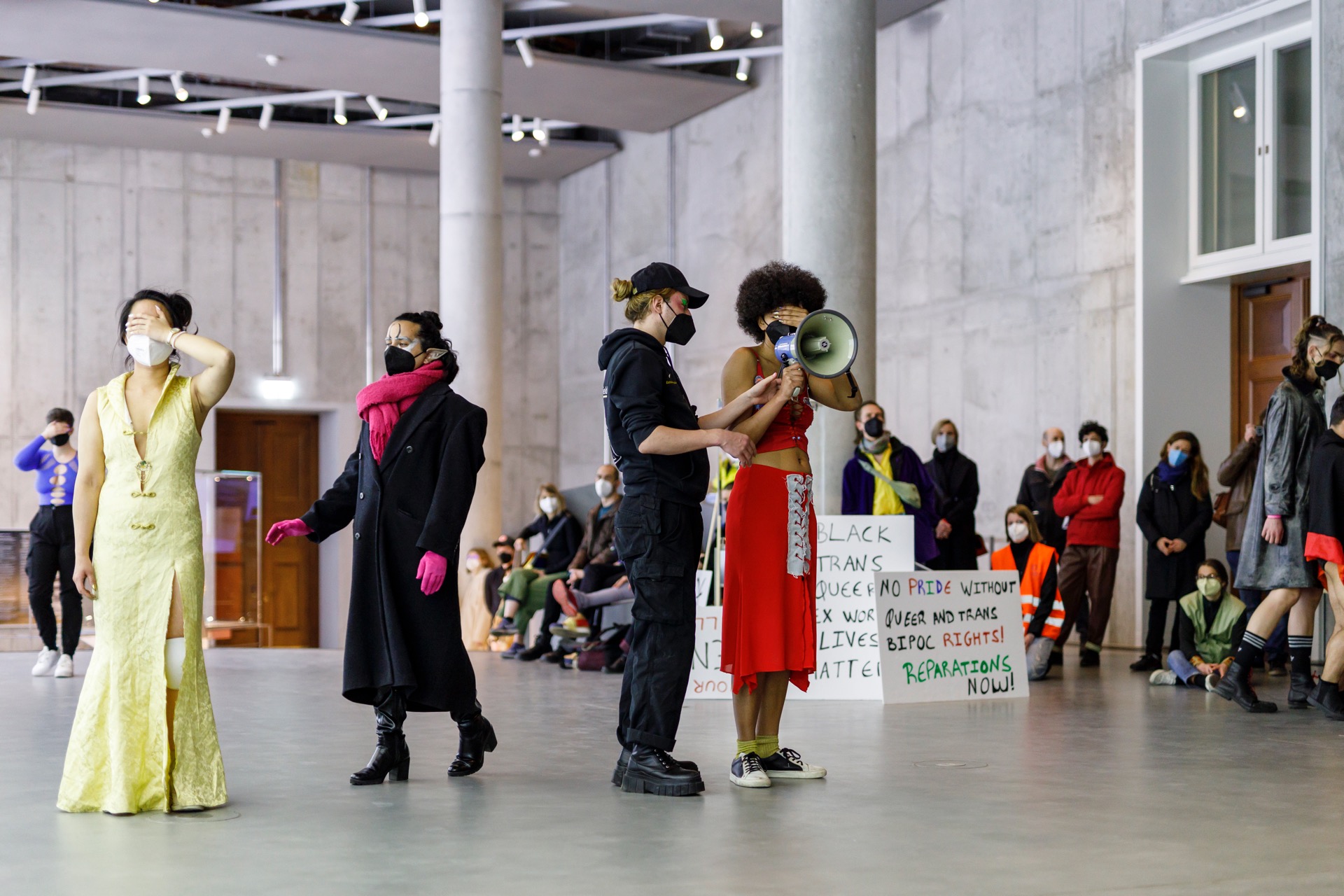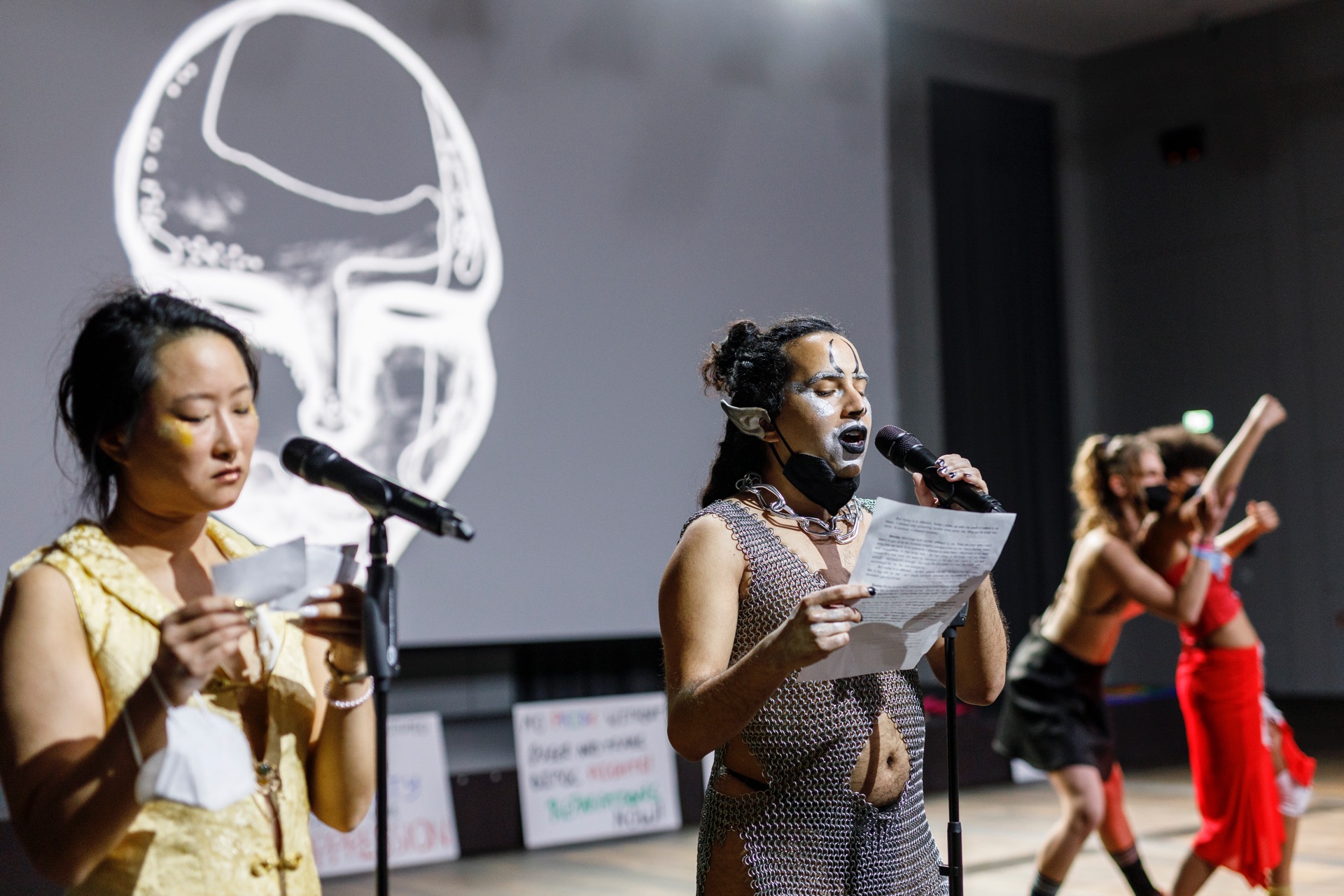The March
The March
Author: Telmo BrancoThe March" is a conglomeration of bodies, of living testaments. "The March" is a funeral, a parade, a riot, and a depiction of the varied histories of LGBTQ+ individuals.
The colonization of gender is a process that happens inside and outside the queer body, inside and outside the territory of one's personality. It is a process that restricts individual and collective expressions that do not coincide with the heteronormative and hegemonic culture of the colonizers.
Upon the body, tensions accumulate. The policing of gender creates behavioural constraints that imprison the body in its ways of being in public, (failed) attempts to protect the queer body from violence and systemic isolation.
The body becomes a shield, a space meant to conceal and protect rather than experience, discover, and inhabit.
Within the body, layers of conflict, vigilance, fear, struggle, and trauma are cemented. Queer biographies are the perfect window into heteronormative societies built upon terror, oppression, and tyranny. Queer bodies expose heteronormative panic.
Queer bodies refuse and defy heteronormativity and for that reason are met with scarcity.
Education is colonized, wealth and resources are colonized, health and medicine are colonized, politics are colonized. Two options remain: to resist and fight, or to adapt and disappear.
Through the combination of dance, theatre, video, sound design, and activism, "The March" attempts to decolonize the queer body from its internalized scarcity. From its experienced isolation, stigmatization, violence, and shame. From its scarcity of (self)love and agency.
"The March" aims to acknowledge the plight that gender colonialism has on the autonomy and growth of queer bodies and individualities, as it dives into the colonial heritage that has been suffered, internalized, and many times recreated in our own community.
Research Questions
What is identity? Who defines identity?
What is privilege? What is normativity? What is marginalization?
What are the long term psychological effects of systemic queerphobia?
How does systemic marginalization affect one's sense of identity?
What does it mean to constantly occupy spaces that represent the colonial violence and erasure of QT bodies?
Is it enough to just occupy oppressive spaces with the very people that these spaces tried to erase?
Where do QT people find hope, validation and closure? Is there space for celebration in the face of ongoing marginalization? Are mourning and celebration, joy and protesting, interlinked in the life experiences of QT individuals?
Presentation at the Humboldt Forum, Berlin:(interview given to DER SPIEGEL)
"As LGBTIQ+ people, of one thing we are certain: A building like the Humboldt Forum was not built for us, neither the new construction, nor the old city palace. Queer and trans individuals (QT) were and are excluded from buildings that reflect the colonialist and patriarchal tradition. We do not feel safe and wanted there! This reality is also reflected in the fact that the vast majority of visitors inside the Humboldt Forum are cis white, middle class, and heterosexual. I would like to know how many queer, non-binary, and trans individuals work at the Humboldt Forum? I haven't met any yet.
When we perform our project, "The March", in the presence of those who work for the Humboldt Forum, we perform it as a protest, a parade, and a funeral. We take the space and the building for ourselves, we celebrate our identity, and symbolically bury the patriarchy with its rigid and oppressive traditions. We lament the suffering that colonialism has inflicted on QTBIPOC bodies and ancestors, and the doctrine of gender that has been fatally imposed on white QT.
We are a white and BIPOC QT artists: Adrian Marie Blount is BIPOC trans and non-binary artists. I am a white non-binary artist. We work with 9 other QT individuals who want to engage with us in this happening. It's a six-week process with partial public rehearsals, and "The March" will be presented on March 26.
Certainly, there is always danger of tokenism when involved in a project at such an institution as the Humboldt Forum. However, I also think: why shouldn't we use the resources when they are offered to us? This is even more valid considering that these resources are hardly available to queer and trans people. The location of the Humboldt Forum also symbolizes centuries of oppression and erasure of queer and trans experiences. An institution like the Humboldt Forum, operating from a position of white supremacy while embracing terms like "decolonization," must take seriously the responsibility that comes from its history all the more, as its wealth and privilege came from the marginalization of BIPOC, QTBIPOC, and white QT. We will use these resources as an act of decolonization to create safe spaces for QT individuals, foregrounding the history of QT BIPOCs." (Telmo Branco)







